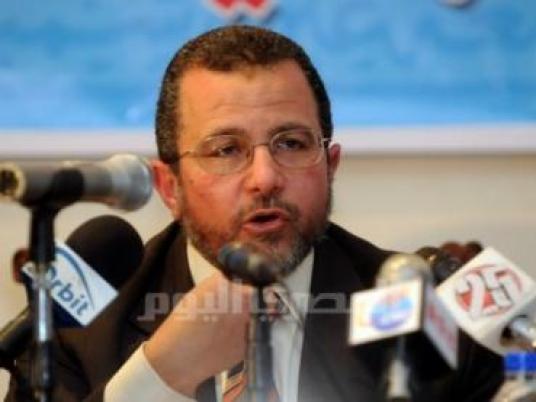
A new Cabinet is expected to be sworn in on Thursday, but Prime Minister-designate Hesham Qandil revealed few details during a press conference at Cabinet headquarters Thursday afternoon.
The former irrigation minister-turned-PM confirmed that as anticipated, head of the Supreme Council of the Armed Forces Field Marshal Hussein Tantawi would remain defense minister.
Qandil stated that now is the time to unite and work with the government, saying “it will not work or succeed alone.” He added that a successful government means a successful nation.
The Cabinet will include 35 ministers, eight of which will be ministers of state. Four new ministries will be established, Qandil stated, including the Ministry of Water and Sewage — which is a separate entity from the currently existing Ministry of Water and Irrigation — and state ministries for youth and sport. The State Ministry of Investment that had been dissolved after the fall of former President Mubarak will be reinstated.
Qandil said he had made decisions about the majority of the ministers who would be selected for the Cabinet, but would go back to talks with the potential ministers after the press conference.
State-run TV has reported that Qandil has selected Salah Abdel Maqsoud, a former figure of the Journalists Syndicate, as minister of information; Ahmed Mekky, former vice-president of the Court of Cassation, as minister of justice; Ashraf al-Sayyed al-Araby, professor of planning at the National Planning Center, as minister of planning and international cooperation; and Hatem Saleh as minister of trade and industry.
On Wednesday rumors about the formation of Qandil’s Cabinet elicited varied reactions from different political parties. Representatives from liberal and secularist parties expressed fears that the new government would be divided between the Muslim Brotherhood and the military council. Others said that the council did not represent the achievement of the demands of the revolution, claiming many of the new ministers were appointed for political reasons and not based on merit.
Coordinator of the Kefaya movement Mohamed Abdel Aziz said called the proposed Cabinet a group of technocrats with no political experience.
Haytham al-Khateeb, a member of the executive bureau of the Union of Revolutionary Youth, claimed that half of the selected ministers would be affiliated with the Muslim Brotherhood, while the other half would have ties to the former regime.
Khateeb also brought up concerns regarding Ahmed Gamal Eddin, the new minister of interior, and allegations that he was involved in criminal cases relating to state security.
Ahmed Maher, founder of the April 6 Youth Movement, said that Morsy is breaking his promise to form a coalition government representing all political forces by selecting ministers from the Muslim Brotherhood. Maher added that other parties will refuse to cooperate with this new government.
Mohamed Abul Ghar, head of the Egyptian Social Democratic Party, said the new Cabinet doesn’t adequately represent Egyptian society. He claimed that major national issues are not going to be addressed and solved by the Cabinet, but by the Muslim Brotherhood.




